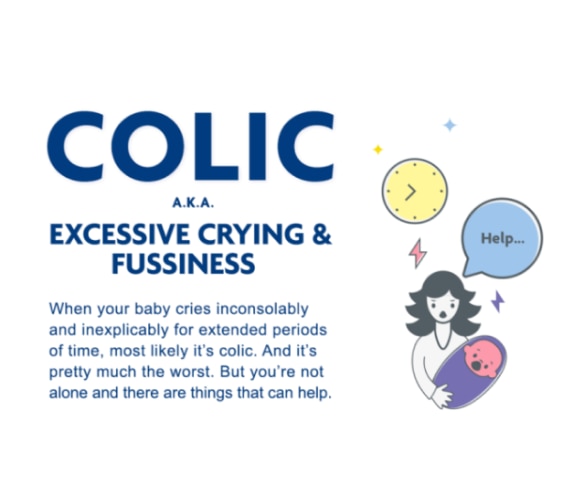Is your breastfed baby having bouts of ongoing, inconsolable crying? If that’s the case, their crying might be considered colic, which begins around the first few weeks of life and typically disappears around the fourth or fifth month. Surprisingly, breastfed babies experience colic at a similar rate as formula-fed babies.
Excessive crying, often referred to as colic, is a common problem in the first months of life — affecting as many as 20% of newborns. Experts have yet to figure out the cause in most cases, but differences in the types and amounts of bacteria in your baby’s gut might make a difference as to whether or not your baby develops colic.
Breastmilk provides a number of benefits to your baby, including serving as a source of good bacteria that helps your baby’s digestive system develop. Research has shown that babies with colic tend to have less of a particular type of lactobacilli bacteria in their gut.
Why Use Probiotics?
- Probiotics are good bacteria that have been shown to provide a benefit when consumed in particular amounts.
- Lactobacillus reuteri (L. reuteri) is a probiotic bacteria similar to those naturally found in breastmilk and that has been studied in many infants and children.
- L. reuteri has been clinically shown to positively influence gut microbiota.
- L. reuteri supplementation has been clinically shown to reduce crying time by 50% in colicky breastfed infants after just one week of use.
Colic may not mean the end of breastfeeding. L. reuteri can easily be given as a supplement to your breastfed baby and is available as infant drops found in the dietary supplement section or baby section.
Check out our range of Gerber® Good Start® supplements here!





